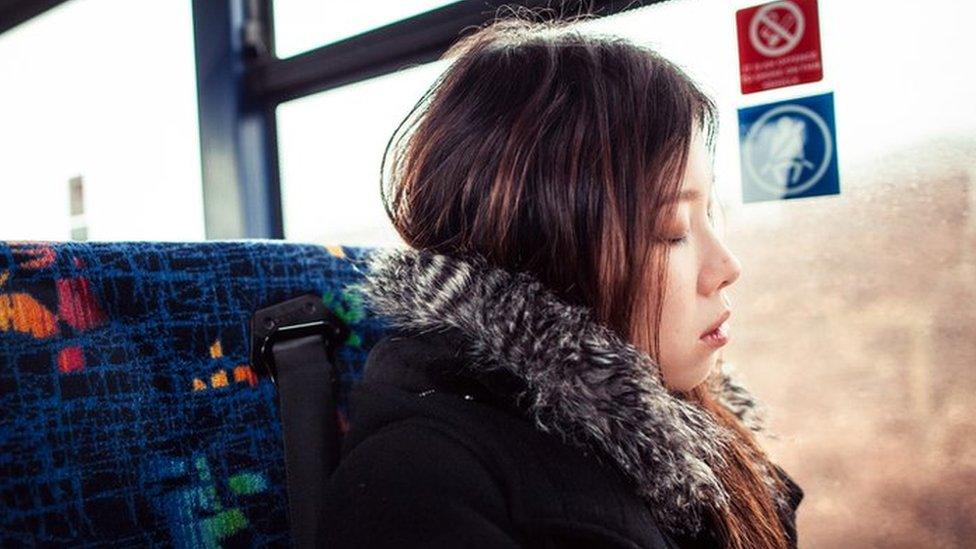Free bus scheme for under-22s clocks up 21 million journeys
- Published
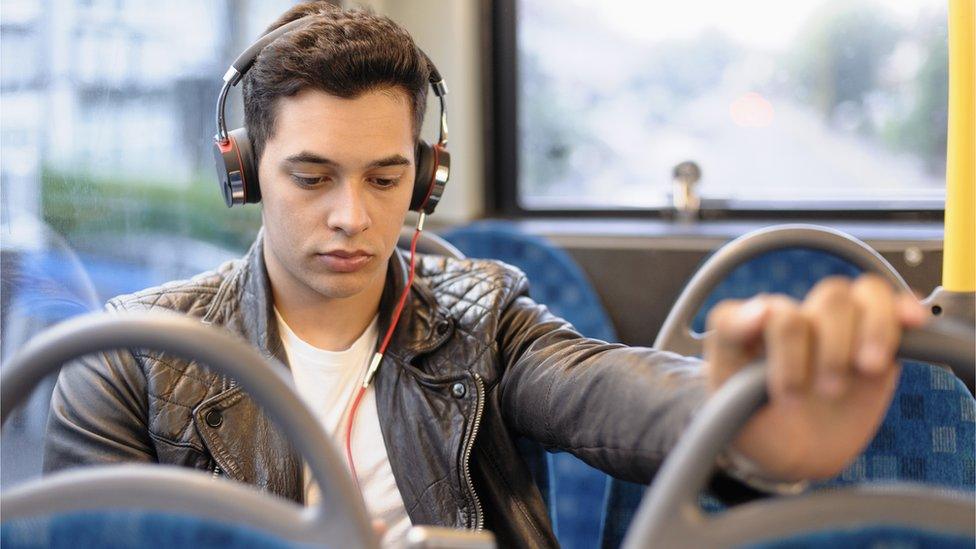
Young Scots have made more than 21 million free bus journeys since the travel scheme began at the start of the year, the Scottish government has said.
Since January, everyone aged between five and 22 has been entitled to free bus travel.
The government says more than half of the 930,000 people who are eligible have now signed up.
However, the scheme - part of an SNP-Green budget deal - has been criticised for for its "confusing" set-up process.
Now a government marketing campaign is being launched in a bid to further increase the uptake.
Across Scotland's 32 council areas, Inverclyde (85.4%), City of Edinburgh (73.0%) and North Ayrshire (69.4%) have the highest uptake rates among eligible youngsters.
Clackmannanshire (30.8%), Falkirk (32.4%) and Comhairle nan Eilean Siar (32.9%) have the lowest.
The national average is 52.0%.
Transport Minister Jenny Gilruth said the "landmark policy" was already helping young people and families with children cut costs while also helping to protect the environment.
She added: "With the majority of eligible young people now having access to free bus travel all across Scotland, for local journeys and trips further afield, now is the time to begin a new campaign aimed at those who may not have considered using the bus before.
"Free bus travel helps with transport affordability, it helps our young people access education and leisure destinations - all while helping us meet our net zero targets by encouraging a shift away from cars."
Freshers students at the University of Strathclyde told BBC Scotland that the passes were potentially saving them hundreds of pounds a year.
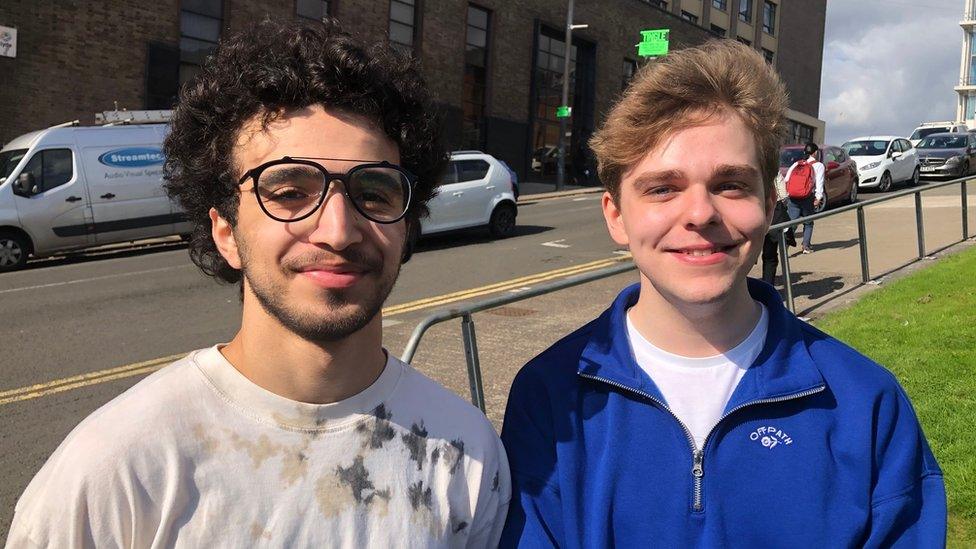
Architecture students Ziyad Alshaibi, left, and Stuart McElwee both use the free passes
Ziyad Alshaibi estimated he had saved more than £500 after receiving his card in early 2022.
"I live in Glasgow now but I have mostly lived in Greenock and Inverclyde so I would take bus trips from Greenock to Gourock, or to Largs or to Wemyss Bay which would have probably cost me like a tenner for a day ticket," he said.
"I used it quite frequently because I went out a lot with friends over the summer. We'd even come here to Glasgow or further."
The 18-year-old, who described the application process as "quite simple", added: "It's also pretty beneficial as it promotes public transport in the age of carbon emission so I think it's been very helpful as a whole."
Fellow architecture student Stuart McElwee, 18, said: "A lot of my friends have had the conversation of should we get the bus or should we get the train. It's always 'let's just get the bus because it's free'."


Free bus travel was billed as a big offer to young voters at the last Scottish election.
Now that it's in place, it's proving pretty popular - with young Scots making almost three million free bus journeys every month.
But could it go further? Just over half of those who are eligible have signed up since January. Not bad, but a long way short of what's possible.
The Scottish government is now launching a slick marketing campaign, to persuade more youngsters to get on board.
That won't help those who complain that signing up is far too complex - with one exasperated parent taking to social media to say: "OMG the application process. I'm IT literate and barely survived. The kids save an 80p fare and may now also be cleared for FBI work."
There's good reason to check the ID of anyone who applies.
But does that require passports, birth certificates, proof of address and photos?
If it's hard to apply, youngsters lose out, especially those without a passport or computer-savvy parents. And it's those young Scots who tend to need free bus travel the most.
Little wonder at least one council is sending teams into its schools, to help pupils deal with the paperwork.
To boost the uptake, some think all schools, colleges and employers could simply provide the Young Scot scheme with a list of those they know are under 22.
With the cost of living rising fast, every free bus journey is a problem solved.

How does the scheme work?
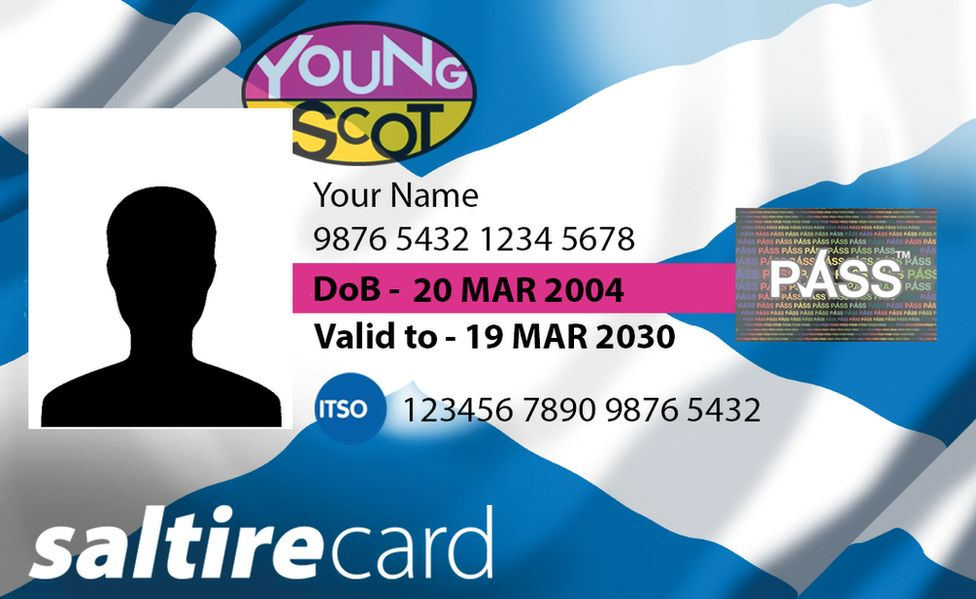
If you live in Scotland and are between five and 21 years old, you can apply for a card which entitles you to free bus travel.
Transport Scotland says to get free bus travel, you'll need a (new or replacement) National Entitlement Card (NEC) or Young Scot National Entitlement Card (Young Scot NEC).
Previously issued cards will not work. Existing cardholders aged 16 and over can use the Transport Scot Pass Collect app, external to activate their existing card.
Cards have a blue circle on them which says "ITSO", and automatically recognises that you are part of the scheme - no matter which bus operator you are using or where in Scotland you are.
Passengers have to tell the bus driver where they are going and tap their card on the card reader.
Parents must apply for children under the age of 16.
Learn more about how you can apply for the scheme, external.
Regional breakdown
The latest government data is based on the estimated eligible population compared against cardholder data as of 12 September.
It shows the nationwide sign-up rate for 5 to 11-year-olds is 42.5%. For those aged 12 to 15 it is 57.9% and for those aged 16 to 21 it is 59.6%.
The breakdown by council area, from highest to lowest, is as follows.

Inverclyde Council, which has the highest uptake rate, sent support teams into schools to help pupils and parents sign up for the scheme.
Councillor Jim Clocherty, the council's education and communities convener, explained: "The main reason is that we recognised that with a change of programme like this, where the onus was on the individual to apply, many simply wouldn't.
"Not because they don't want it or don't value it. People's lives are busy and they don't have the time to seek out application forms and find a way of completing it and returning it unless they are really motivated to do it."
He added: "The key aim was to minimise the number of young people who miss out."
Related topics
- Published31 January 2022
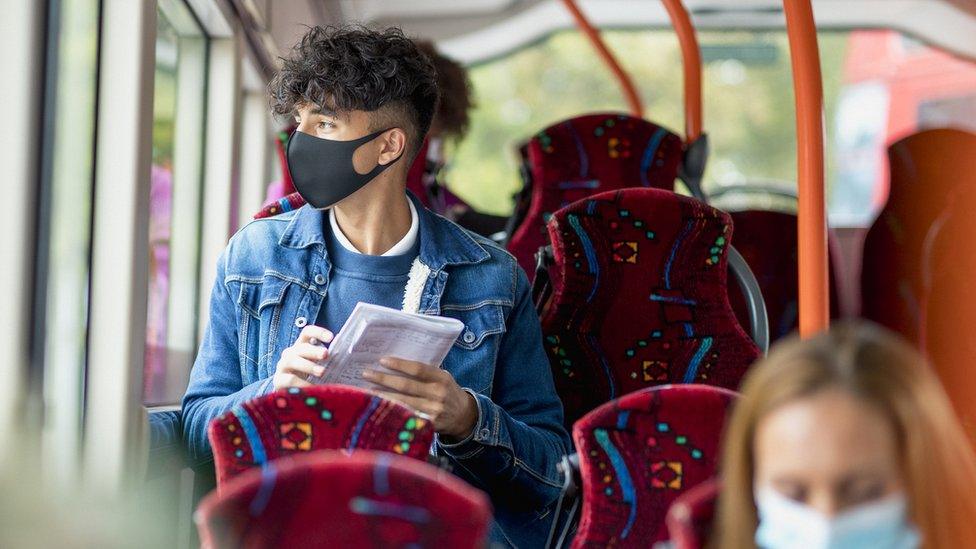
- Published20 May 2022
